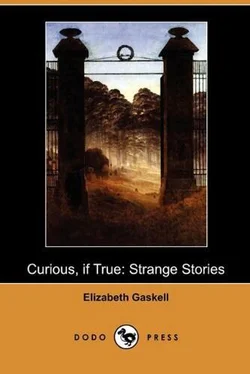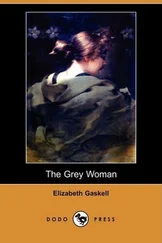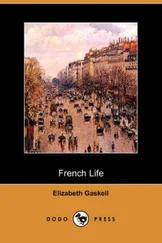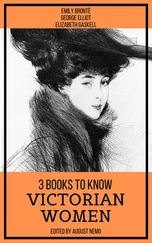At this instant, monsieur our host came up to me, and with a civil look of tender interest (such as some people put on when they inquire after your mother, about whom they do not care one straw), asked if I had heard lately how my cat was? "How my cat was!" What could the man mean? My cat! Could he mean the tailless Tom, born in the Isle of Man, and now supposed to be keeping guard against the incursions of rats and mice into my chambers in London? Tom is, as you know, on pretty good terms with some of my friends, using their legs for rubbing-posts without scruple, and highly esteemed by them for his gravity of demeanour, and wise manner of winking his eyes. But could his fame have reached across the Channel? However, an answer must be returned to the inquiry, as monsieur's face was bent down to mine with a look of polite anxiety; so I, in my turn, assumed an expression of gratitude, and assured him that, to the best of my belief, my cat was in remarkably good health.
"And the climate agrees with her?"
"Perfectly," said I, in a maze of wonder at this deep solicitude in a tailless cat who had lost one foot and half an ear in some cruel trap. My host smiled a sweet smile, and, addressing a few words to my little neighbour, passed on.
"How wearisome those aristocrats are!" quoth my neighbour, with a slight sneer. "Monsieur's conversation rarely extends to more than two sentences to any one. By that time his faculties are exhausted, and he needs the refreshment of silence. You and I, monsieur, are, at any rate, indebted to our own wits for our rise in the world!"
Here again I was bewildered! As you know, I am rather proud of my descent from families which, if not noble themselves, are allied to nobility, — and as to my "rise in the world" — if I had risen, it would have been rather for balloon-like qualities than for mother-wit, to being unencumbered with heavy ballast either in my head or my pockets. However, it was my cue to agree: so I smiled again.
"For my part," said he, "if a man does not stick at trifles, if he knows how to judiciously add to, or withhold facts, and is not sentimental in his parade of humanity, he is sure to do well; sure to affix a de or von to his name, and end his days in comfort. There is an example of what I am saying" — and he glanced furtively at the weak-looking master of the sharp, intelligent servant, whom I have called the chasseur.
"Monsieur le Marquis would never have been anything but a miller's son, if it had not been for the talents of his servant. Of course you know his antecedents?"
I was going to make some remarks on the changes in the order of the peerage since the days of Louis XVI. — going, in fact, to be very sensible and historical—when there was a slight commotion among the people at the other end of the room. Lacqueys in quaint liveries must have come in from behind the tapestry, I suppose (for I never saw them enter, though I sate right opposite to the doors), and were handing about the slight beverages and slighter viands which are considered sufficient refreshments, but which looked rather meagre to my hungry appetite. These footmen were standing solemnly opposite to a lady, — beautiful, splendid as the dawn, but—sound asleep in a magnificent settee. A gentleman who showed so much irritation at her ill-timed slumbers, that I think he must have been her husband, was trying to awaken her with actions not far removed from shakings. All in vain; she was quite unconscious of his annoyance, or the smiles of the company, or the automatic solemnity of the waiting footman, or the perplexed anxiety of monsieur and madame.
My little friend sat down with a sneer, as if his curiosity was quenched in contempt.
"Moralists would make an infinity of wise remarks on that scene," said he. "In the first place, note the ridiculous position into which their superstitious reverence for rank and title puts all these people. Because monsieur is a reigning prince over some minute principality, the exact situation of which no one has as yet discovered, no one must venture to take their glass of eau sucré till Madame la Princesse awakens; and, judging from past experience, those poor lacqueys may have to stand for a century before that happens. Next—always speaking as a moralist, you will observe—note how difficult it is to break off bad habits acquired in youth!"
Just then the prince succeeded, by what means I did not see, in awaking the beautiful sleeper. But at first she did not remember where she was, and looking up at her husband with loving eyes, she smiled and said:
"Is it you, my prince?"
But he was too conscious of the suppressed amusement of the spectators and his own consequent annoyance, to be reciprocally tender, and turned away with some little French expression, best rendered into English by "Pooh, pooh, my dear!"
After I had had a glass of delicious wine of some unknown quality, my courage was in rather better plight than before, and I told my cynical little neighbour—whom I must say I was beginning to dislike—that I had lost my way in the wood, and had arrived at the château quite by mistake.
He seemed mightily amused at my story; said that the same thing had happened to himself more than once; and told me that I had better luck than he had on one of these occasions, when, from his account, he must have been in considerable danger of his life. He ended his story by making me admire his boots, which he said he still wore, patched though they were, and all their excellent quality lost by patching, because they were of such a first-rate make for long pedestrian excursions. "Though, indeed," he wound up by saying, "the new fashion of railroads would seem to supersede the necessity for this description of boots."
When I consulted him as to whether I ought to make myself known to my host and hostess as a benighted traveller, instead of the guest whom they had taken me for, he exclaimed, "By no means! I hate such squeamish morality." And he seemed much offended by my innocent question, as if it seemed by implication to condemn something in himself. He was offended and silent; and just at this moment I caught the sweet, attractive eyes of the lady opposite—that lady whom I named at first as being no longer in the bloom of youth, but as being somewhat infirm about the feet, which were supported on a raised cushion before her. Her looks seemed to say, "Come here, and let us have some conversation together;" and, with a bow of silent excuse to my little companion, I went across to the lame old lady. She acknowledged my coming with the prettiest gesture of thanks possible; and, half apologetically, said, "It is a little dull to be unable to move about on such evenings as this; but it is a just punishment to me for my early vanities. My poor feet, that were by nature so small, are now taking their revenge for my cruelty in forcing them into such little slippers…. Besides, monsieur," with a pleasant smile, "I thought it was possible you might be weary of the malicious sayings of your little neighbour. He has not borne the best character in his youth, and such men are sure to be cynical in their old age."
"Who is he?" asked I, with English abruptness.
"His name is Poucet, and his father was, I believe, a wood-cutter, or charcoal burner, or something of the sort. They do tell sad stories of connivance at murder, ingratitude, and obtaining money on false pretences—but you will think me as bad as he if I go on with my slanders. Rather let us admire the lovely lady coming up towards us, with the roses in her hand—I never see her without roses, they are so closely connected with her past history, as you are doubtless aware. Ah, beauty!" said my companion to the lady drawing near to us, "it is like you to come to me, now that I can no longer go to you." Then turning to me, and gracefully drawing me into the conversation, she said, "You must know that, although we never met until we were both married, we have been almost like sisters ever since. There have been so many points of resemblance in our circumstances, and I think I may say in our characters. We had each two elder sisters—mine were but half-sisters, though—who were not so kind to us as they might have been."
Читать дальше












